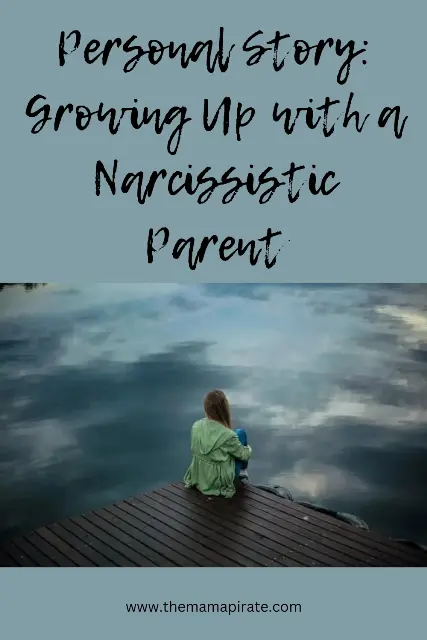Last Updated on 2 years ago by Priyanka Handique
Growing up, my home was a confusing place. On the surface, everything seemed perfect—beautifully decorated rooms, an abundance of gifts during holidays, and a family that looked happy. But beneath the veneer of perfection, there was a dark, unsettling undercurrent that I didn’t fully understand until I was much older. My mother, the center of our family, was a narcissist, and it took years for me to realize the profound impact that had on my life.
The Early Years: Walking on Eggshells
As a child, I learned quickly that my mother’s moods dictated the atmosphere of the entire house. If she was happy, we all breathed a little easier. But if she was upset or angry, the entire house tensed up, like a rubber band stretched to its limit. The smallest thing could set her off—a misplaced item, a less-than-perfect grade, or even just the wrong expression on someone’s face. My siblings and I became experts at reading her mood and adjusting our behavior accordingly, constantly walking on eggshells to avoid triggering her wrath.
One of the most confusing aspects of living with my mother was the unpredictability of her reactions. She could be loving and attentive one moment, then cold and dismissive the next. I remember how she would shower me with praise in front of others, bragging about my achievements as if they were her own. But behind closed doors, that praise often turned into criticism. If I didn’t live up to her expectations, she would lash out, telling me how I had embarrassed her or how I wasn’t good enough. I grew up believing that my worth was tied to how well I could meet her ever-changing demands.
The Impact on Self-Esteem
Living with a narcissistic parent erodes your self-esteem in ways that are hard to describe. I internalized the message that I was only valuable when I was making her look good. I became a perfectionist, striving to be the best at everything I did, not because I enjoyed it, but because I needed her approval. Even when I succeeded, the sense of accomplishment was fleeting, because my mother would always find something wrong, something I could have done better.
Over time, I began to lose sight of who I really was. My identity became entangled with my mother’s expectations, and I struggled to distinguish my own desires and goals from the ones she had imposed on me. I learned to suppress my emotions, particularly anger and sadness, because expressing them often led to more criticism or even outright rejection. I felt like I was constantly wearing a mask, hiding my true self in order to keep the peace.
The Loneliness of a Narcissistic Parent
One of the most isolating aspects of growing up with a narcissistic parent is the loneliness. From the outside, my family appeared to be close-knit, but the reality was very different. Narcissists often require a constant source of admiration, and in my mother’s case, that meant turning our family into her personal fan club. She would often pit us siblings against each other, encouraging competition and jealousy, all while playing the role of the benevolent, long-suffering mother. This created an environment where genuine connections were difficult to form. I often felt like I had to compete for her attention and approval, which only deepened my sense of isolation.
As I got older, I began to notice how different my family dynamics were from those of my friends. Their parents seemed genuinely interested in their lives, whereas my mother was only interested in what she could show off to others. I remember feeling envious when I saw my friends having open, honest conversations with their parents. In my family, honesty was a double-edged sword—speak your truth, and you might be met with anger or worse, indifference.
Breaking Free
It wasn’t until I went to college that I began to understand the full extent of my mother’s narcissism. Being away from home allowed me to see things more clearly. I started reading about narcissistic personality disorder and slowly began to piece together the puzzle of my childhood. The realization was both liberating and devastating. On one hand, it was a relief to know that the problem wasn’t me, that I wasn’t inherently flawed. On the other hand, I had to come to terms with the fact that my mother’s love was conditional, based on my ability to make her feel good about herself.
The process of breaking free from her influence has been long and difficult. It has taken years of therapy, self-reflection, and, most importantly, learning to trust my own instincts. I’ve had to unlearn the belief that my worth is tied to someone else’s approval and rediscover who I am, independent of my mother’s expectations.
Moving Forward
Today, I’m still healing, but I’m also thriving. I’ve set boundaries with my mother, which was one of the hardest things I’ve ever done. Our relationship is still complicated, but I’ve learned to protect myself from her manipulations. More importantly, I’ve learned to love myself in a way that I never thought possible when I was younger.
Growing up with a narcissistic parent leaves deep scars, but it also teaches you resilience. I’ve learned that I am more than my mother’s reflection, and I’ve found strength in my ability to overcome the challenges she placed in my path. My journey isn’t over, but for the first time, I feel like I’m truly living my own life.

MORE POSTS: 16 Things To Do When Your Mom Says Hurtful Things



